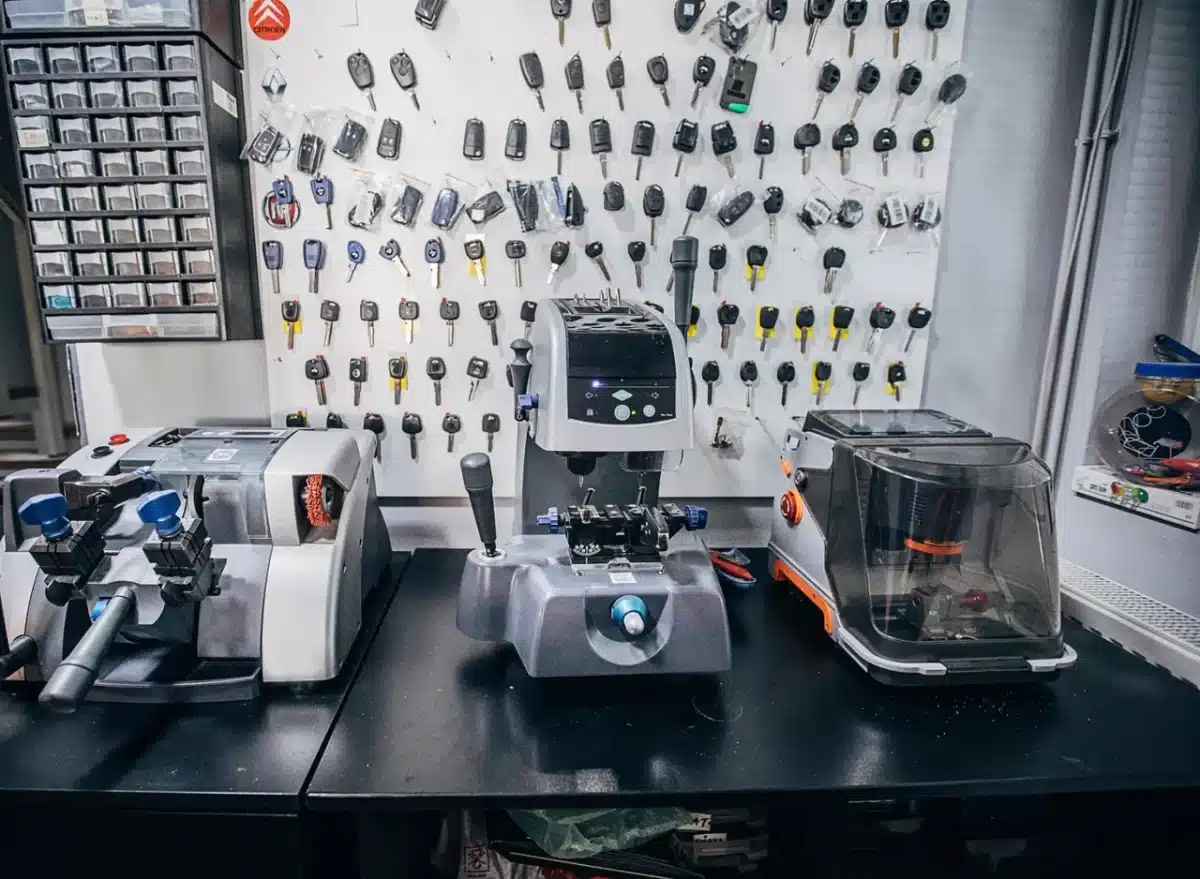Garage doors are one of the most used entry points to any home, which means they’re also subject to frequent issues. Over time, parts may wear out or stop working altogether, leading to various malfunctions. Many homeowners attempt to fix these issues themselves, but some problems are complex and can benefit from professional assistance. Let’s explore some common garage door errors and discuss when it’s best to seek expert help.
1. Garage Door Won’t Open or Close
One of the most frequent complaints is a garage door that simply won’t open or close. This issue can stem from a range of causes, including:
- Power source disruptions: If your door isn’t responding, check whether the opener is plugged in and if the breaker hasn’t tripped.
- Broken springs: Garage door springs do most of the heavy lifting, so if one snaps, your door might not open. Replacing springs is a job best left to professionals due to the high tension involved.
- Misaligned sensors: Sensors located at the base of your door are responsible for detecting objects and preventing the door from closing on them. If these sensors are misaligned or blocked, they might keep the door from closing.
Learn more about the role of sensors and how they impact garage door operation.
2. Noisy Door Operation
A noisy garage door is more than just an annoyance; it can indicate a problem. Some reasons for excessive noise include:
- Loose hardware: Screws, nuts, and bolts can loosen over time. Simply tightening them can often resolve the issue.
- Worn-out rollers: If the rollers are worn, they may cause rattling or grinding sounds. Replacing them with nylon rollers, which are quieter, can help.
- Unlubricated parts: Your garage door’s parts need regular lubrication. Hinges, springs, and rollers should be lubricated twice a year to keep the door running smoothly and quietly.
Regular maintenance can prevent most noise issues, but if noise persists, it may signal a more complex problem that requires a technician.
3. Door Reverses Before Hitting the Floor
If your garage door begins to close but reverses before it touches the ground, there may be an issue with the opener’s limit settings. These settings tell the opener how far the door should move before it’s fully closed. Adjusting the limit screws on the opener can often fix the issue, but in some cases, sensor alignment may also be involved.
For additional tips on adjusting limit settings, check out this guide.
4. Door Moves Unevenly
When a garage door appears to move unevenly, it’s often due to:
- Track obstructions: Check that the tracks are clear of debris or small objects that might obstruct the door’s movement.
- Misaligned tracks: If the tracks aren’t perfectly parallel, the door can become unbalanced. This misalignment should be handled by a professional, as attempting to realign tracks on your own can lead to injuries.
- Spring issues: Uneven movement can also result from spring issues. In doors with dual springs, if one spring breaks, the door will move unevenly, putting strain on the opener and the remaining spring.
5. Door Closes Too Quickly
A garage door that closes too quickly poses a safety risk. This issue typically points to a problem with the springs or cables:
- Broken or weak springs: If the springs are no longer able to support the weight of the door, it may fall quickly when closing. This situation is dangerous, and the springs should be replaced immediately by a professional.
- Faulty cables: Cables hold the door in place and ensure it lowers at a controlled rate. If a cable is frayed or broken, the door may close too fast, creating a hazard.
6. The Remote or Keypad Doesn’t Work
If your remote or keypad stops functioning, it might be due to:
- Dead batteries: This is often the simplest fix. Check and replace the batteries to see if that resolves the issue.
- Signal interference: Nearby electronics can interfere with the remote’s signal, preventing it from communicating with the opener.
- Programming issues: Remotes and keypads sometimes lose their connection to the opener and need to be reprogrammed. Refer to your opener’s manual or contact a professional to assist.
7. Door Sticks or Moves Slowly
If your garage door sticks or moves slower than usual, it could be due to:
- Dirty or obstructed tracks: Tracks that have accumulated dirt or are blocked by objects can cause the door to stick.
- Opener issues: Over time, the opener may start to lose power, making it more difficult for the door to open and close smoothly.
- Lack of lubrication: A poorly lubricated system can increase friction, causing the door to move slowly. Regularly lubricating hinges, rollers, and springs can often solve this issue.
The Importance of Regular Garage Door Maintenance
Routine maintenance can prevent many common garage door problems. Basic upkeep includes cleaning the tracks, lubricating moving parts, and checking for any loose hardware. However, more complex tasks, such as replacing springs or realigning tracks, require professional help. Regular inspections by professionals can also catch issues early, potentially saving you from costly repairs down the line.
Top Lock & Garage: Expert Garage Door Repair in Rhode Island
Garage doors are essential for security and convenience, and any problem with them should be addressed promptly to ensure safe and reliable operation. At Top Lock & Garage, we offer comprehensive garage door repair and maintenance services across Rhode Island. Our team has the expertise to handle any garage door issue, from broken springs to misaligned tracks, ensuring your door operates smoothly and safely.

